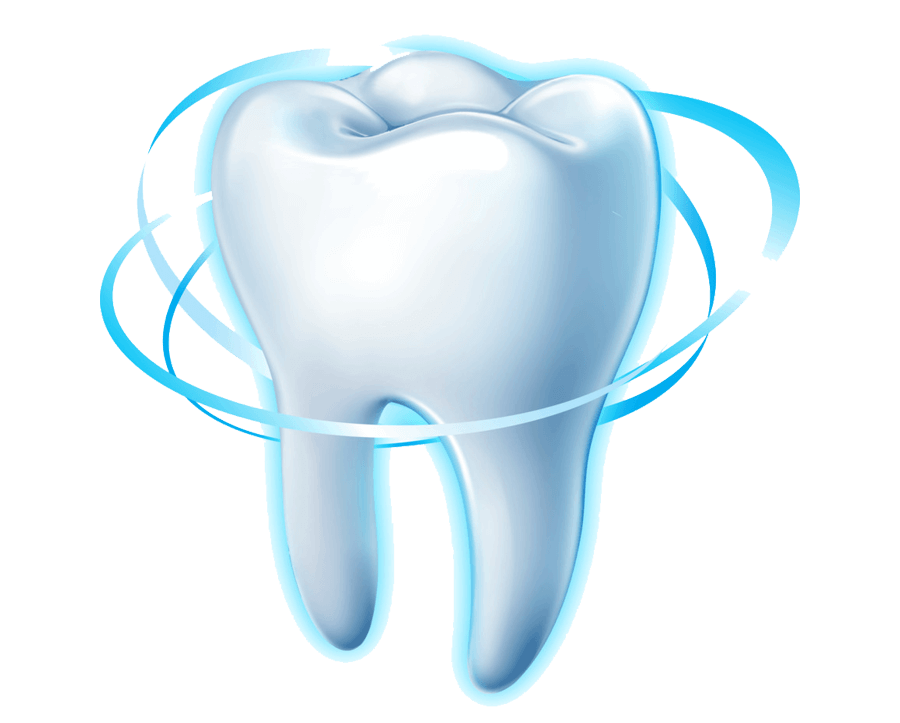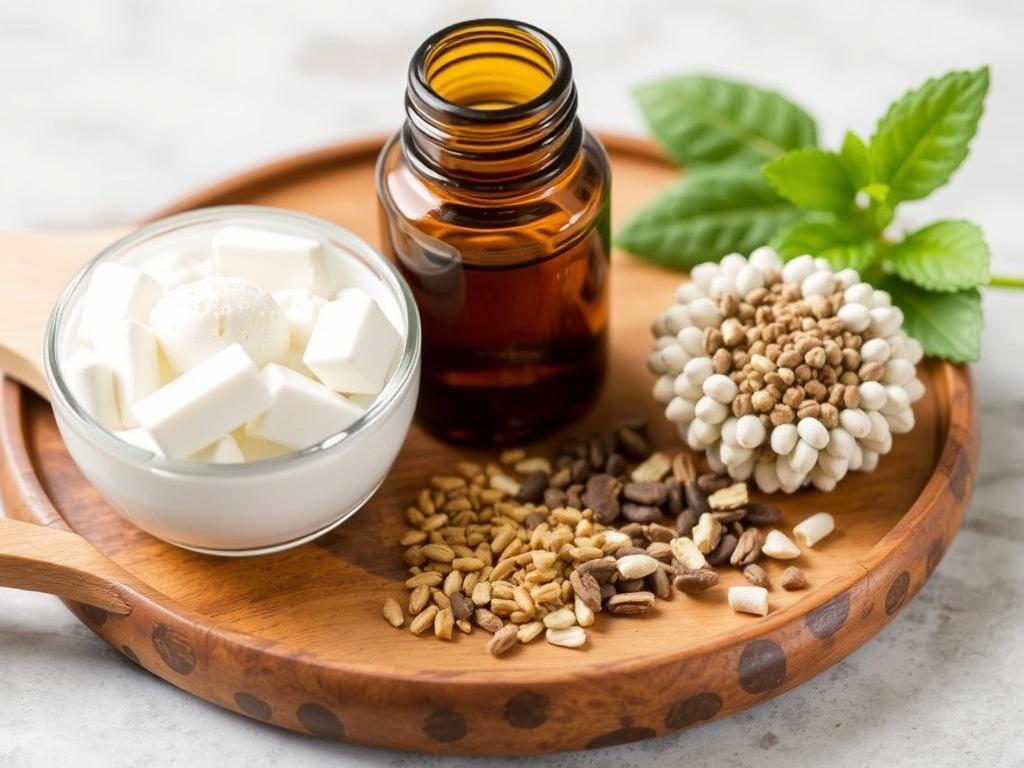When it comes to maintaining oral health, toothpaste is an essential part of our daily routine. However, many commercial toothpaste brands contain chemicals, artificial flavors, and preservatives that some people prefer to avoid. If you’re interested in exploring natural alternatives to commercial toothpaste, you’re not alone. More and more individuals are turning to natural, homemade, or organic options that are gentle on teeth and gums, while being environmentally friendly.
In this article, we’ll dive deep into the world of natural alternatives to commercial toothpaste, explaining what they are, why you might choose them, and how you can use them effectively. From baking soda and coconut oil to herbal powders and essential oils, there is a wide variety to choose from. Plus, we’ll share tips and recipes to help you get started right away.
Содержание
- 1 Why Consider Natural Alternatives to Commercial Toothpaste?
- 2 Popular Natural Ingredients Used as Commercial Toothpaste Alternatives
- 3 Homemade Recipes for Natural Toothpaste Alternatives
- 4 Tips for Successfully Using Natural Toothpaste Alternatives
- 5 Comparing Natural Toothpaste Alternatives vs. Commercial Toothpaste
- 6 Potential Concerns and Considerations
- 7 The Future of Toothpaste: Natural Ingredients Gaining Ground
Why Consider Natural Alternatives to Commercial Toothpaste?
Commercial toothpaste is convenient and widely used, but it often includes ingredients that might be harmful or simply unnecessary. For example, many toothpaste brands use sodium lauryl sulfate (SLS) as a foaming agent, substances like triclosan that may disrupt hormones, and artificial sweeteners or dyes that some people prefer to avoid. Additionally, fluoride, while effective for preventing cavities, is sometimes controversial, leading some to seek fluoride-free options.
Natural alternatives to commercial toothpaste typically avoid harsh chemicals and synthetic additives, making them gentler on sensitive mouths. They often contain ingredients with anti-inflammatory, antibacterial, and whitening properties, and many are biodegradable and eco-friendly. People with allergies, sensitive teeth, or those looking to adopt a cleaner lifestyle often find natural toothpaste options appealing.
Key Benefits of Using Natural Toothpaste Alternatives
- Free from harsh chemicals and artificial additives
- Often fluoride-free for those avoiding fluoride
- Environmentally friendly and biodegradable ingredients
- Helps reduce chemical exposure and potential allergens
- Customizable with natural flavors and essential oils
Popular Natural Ingredients Used as Commercial Toothpaste Alternatives
Exploring natural alternatives begins with understanding the common ingredients people use at home or buy from specialty stores. Here is a list of some popular natural substances that make excellent toothpaste alternatives:
| Ingredient | Description | Benefits | How to Use |
|---|---|---|---|
| Baking Soda (Sodium Bicarbonate) | A mild alkaline powder commonly used in baking and cleaning | Whitening teeth, neutralizing acids, cleaning plaque | Mix with water to form a paste; brush gently 1-2 times a week |
| Coconut Oil | An edible oil extracted from coconuts | Antibacterial properties, helps reduce plaque, supports healthy gums | Use for oil pulling or mix with baking soda for brushing |
| Activated Charcoal | Carbon processed to have small, low-volume pores | Helps remove surface stains and toxins | Brush lightly with charcoal powder 1-2 times a week |
| Neem | A medicinal plant used traditionally in Ayurvedic practices | Antibacterial, anti-inflammatory, helps with gum health | Use neem powder or extract in homemade toothpaste |
| Aloe Vera Gel | A soothing gel from aloe vera leaves | Soothes gums, antibacterial, promotes healing | Mix with baking soda or use alone to brush gently |
| Essential Oils (Peppermint, Tea Tree, Clove) | Concentrated plant extracts with medicinal properties | Freshen breath, antibacterial, anti-inflammatory | Add few drops to homemade toothpaste or rinse |
Baking Soda: The Classic Natural Toothpaste Alternative
Baking soda has been a longstanding natural alternative to commercial toothpaste. Its gentle abrasive quality helps polish your teeth and remove stains without damaging enamel. Moreover, it neutralizes acidic conditions in the mouth, reducing the risk of cavities and bad breath. Using baking soda as a toothpaste alternative is inexpensive and effective but should be done in moderation to avoid overdrying or irritation of gums.
Coconut Oil: More Than Just a Cooking Staple
Coconut oil is renowned for its antimicrobial abilities, particularly against Streptococcus mutans, a bacteria responsible for tooth decay. Oil pulling, the ancient practice of swishing oil in the mouth for about 10-20 minutes, can reduce plaque buildup and improve oral hygiene. Additionally, coconut oil can be combined with powders like baking soda or clay to create a creamy, natural toothpaste paste that supports healthy teeth and gums.
Activated Charcoal: The Black Gold for Whitening Teeth
Activated charcoal has surged in popularity as a natural whitening agent. Its porous structure traps toxins and surface stains on teeth, helping to brighten your smile. However, it is abrasive, so dental experts advise using it sparingly and gently to avoid enamel erosion. When used correctly, activated charcoal can complement other natural ingredients to keep teeth clean and fresh.
Homemade Recipes for Natural Toothpaste Alternatives
One of the best aspects of natural alternatives to commercial toothpaste is that many are easy to prepare at home. Crafting your own toothpaste allows you to avoid unwanted chemicals, customize the flavor, and tailor the formula to suit your personal health needs. Here are a few simple recipes to get you started:
Basic Baking Soda Toothpaste
- 2 tablespoons baking soda
- 1 tablespoon coconut oil
- 5 drops peppermint essential oil (optional)
Mix ingredients until you get a paste-like consistency. Store in a small jar and use as you would traditional toothpaste, brushing gently.
Aloe Vera and Neem Herbal Paste
- 2 tablespoons aloe vera gel
- 1 teaspoon neem powder
- 1 teaspoon baking soda
- 3 drops tea tree oil
Combine all ingredients and stir well. This paste is soothing and antibacterial, perfect for sensitive gums.
Coconut Oil & Activated Charcoal Paste
- 1 tablespoon coconut oil
- 1 teaspoon activated charcoal powder
- A pinch of baking soda (optional)
- 4 drops clove essential oil
Mix thoroughly and apply carefully for teeth whitening benefits.
Tips for Successfully Using Natural Toothpaste Alternatives
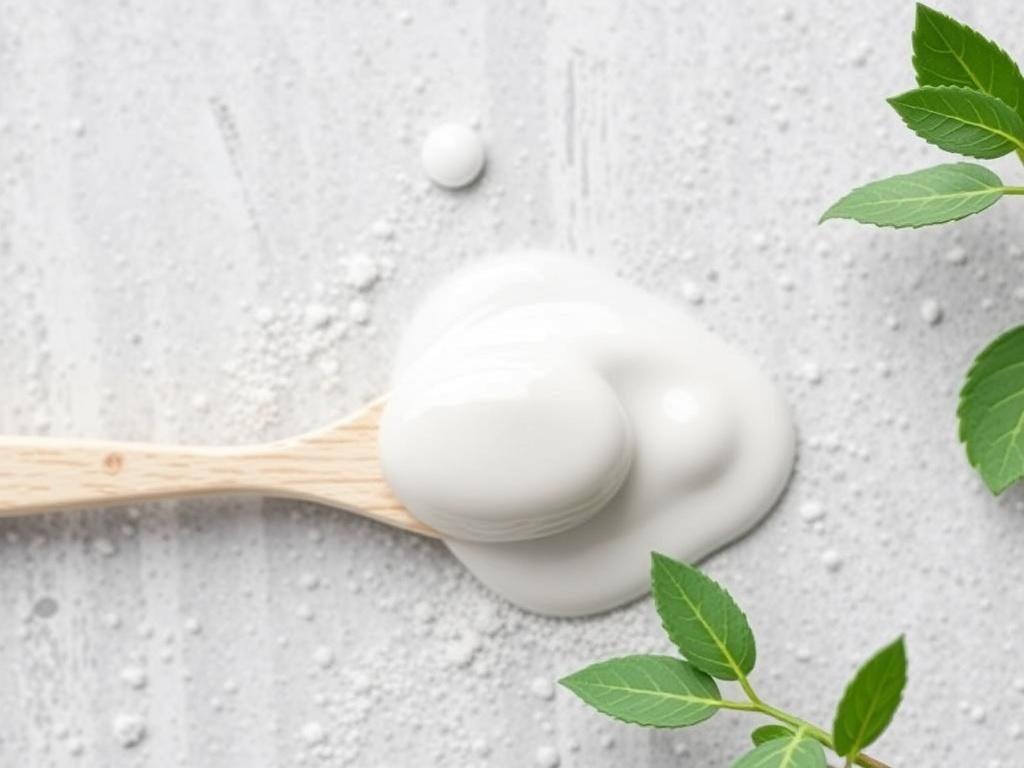
Switching to natural toothpaste alternatives might feel like a big change, but with some simple tips, you’ll find it easy and enjoyable:
- Start Slowly: Use natural toothpastes a few times a week alongside your regular toothpaste at first, allowing your mouth to adjust.
- Brush Gently: Many natural alternatives have abrasive ingredients, so gentle brushing helps protect enamel.
- Maintain Regular Dental Checkups: Natural toothpaste alternatives support oral health but do not replace professional care.
- Store Properly: Homemade pastes should be kept in clean containers, preferably in a cool, dry place.
- Customize Accordingly: Feel free to add or reduce essential oils and powders depending on your flavor preference and sensitivity.
Comparing Natural Toothpaste Alternatives vs. Commercial Toothpaste
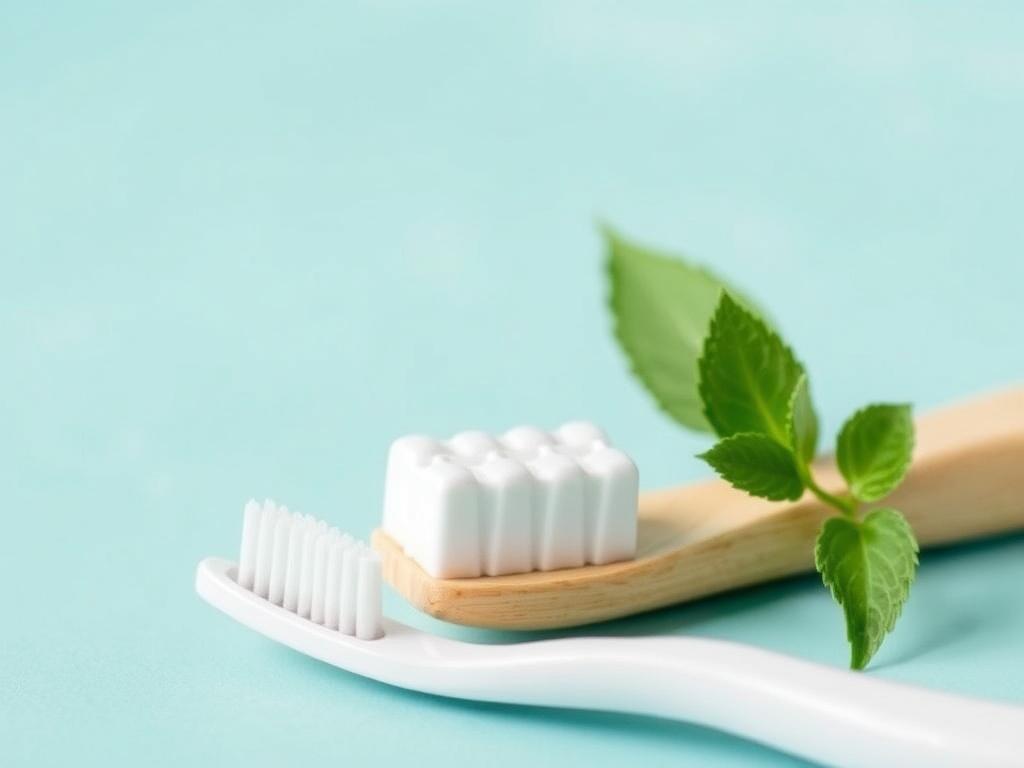
It helps to understand how natural toothpaste options stack up against typical commercial products. Here’s a quick comparison table to highlight the key differences:
| Aspect | Natural Toothpaste Alternatives | Commercial Toothpaste |
|---|---|---|
| Ingredients | Natural, often organic, no synthetic chemicals | May contain artificial flavors, preservatives, SLS, fluoride |
| Fluoride Content | Usually fluoride-free or optionally added | Commonly contains fluoride for cavity prevention |
| Abrasiveness | Can be mild to moderate, depends on ingredient concentration | Generally formulated to minimize enamel wear |
| Environmental Impact | Biodegradable, eco-friendly packaging possible | May use plastic tubes and contain non-biodegradable ingredients |
| Cost | Often less expensive or DIY | Ranges from budget to premium, often pricey over time |
Potential Concerns and Considerations
While natural alternatives to commercial toothpaste offer many benefits, it’s important to be mindful of certain concerns:
- Enamel Safety: Some abrasive ingredients like baking soda or activated charcoal, if used excessively or with too much force, can damage tooth enamel over time.
- Fluoride Absence: Fluoride plays a proven role in cavity prevention. If you’re going fluoride-free, be sure to maintain good oral hygiene habits and consult with your dentist.
- Allergies and Sensitivities: Natural oils and herbs can cause allergic reactions in some individuals.
- Consistency: Homemade pastes don’t foam like commercial toothpaste; some people miss this sensory feedback.
Understanding these factors will help you get the most out of your natural toothpaste routine while protecting your oral health.
The Future of Toothpaste: Natural Ingredients Gaining Ground
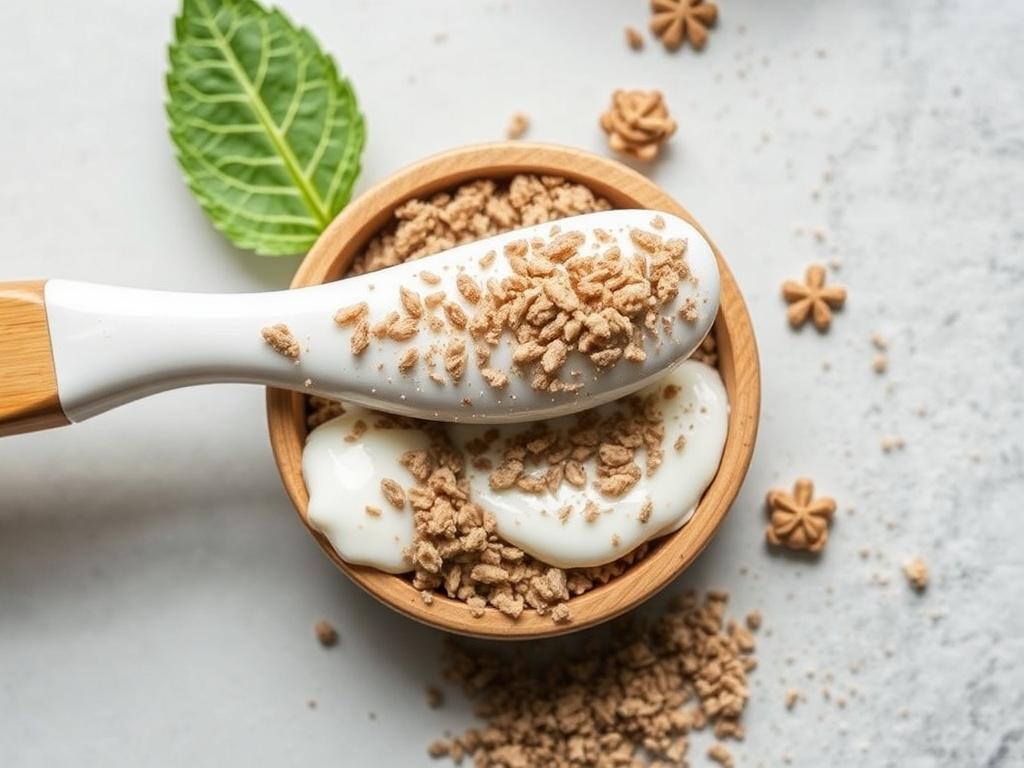
The rise of natural alternatives to commercial toothpaste speaks to a broader trend: people’s growing interest in cleaner, greener lifestyle choices. Natural oral care products, from tooth powders to herbal pastes and oil-pulling oils, are gaining popularity worldwide. Companies are responding by offering commercially available natural toothpaste options that combine the best of both worlds—convenience and natural ingredients.
Additionally, scientific research is uncovering more about the antibacterial and healing properties of natural compounds, paving the way for innovative dental care products. This movement not only benefits individual health but also reduces environmental impact by limiting plastic waste and chemical runoff.
Conclusion
Natural alternatives to commercial toothpaste provide a compelling option for anyone looking to reduce chemical exposure, embrace eco-friendly lifestyles, or simply explore different ways to care for their teeth and gums. Whether you choose to craft your own toothpaste from baking soda and coconut oil, try herbal pastes infused with neem and aloe vera, or use gentle activated charcoal whitening treatments, these natural ingredients offer effective, safe, and often budget-friendly alternatives. As with any oral care regimen, consistency, gentle technique, and regular dental visits are key to maintaining a bright, healthy smile. By making informed choices and embracing natural alternatives, you can enjoy not only cleaner teeth but also a greater sense of well-being and harmony with nature.
